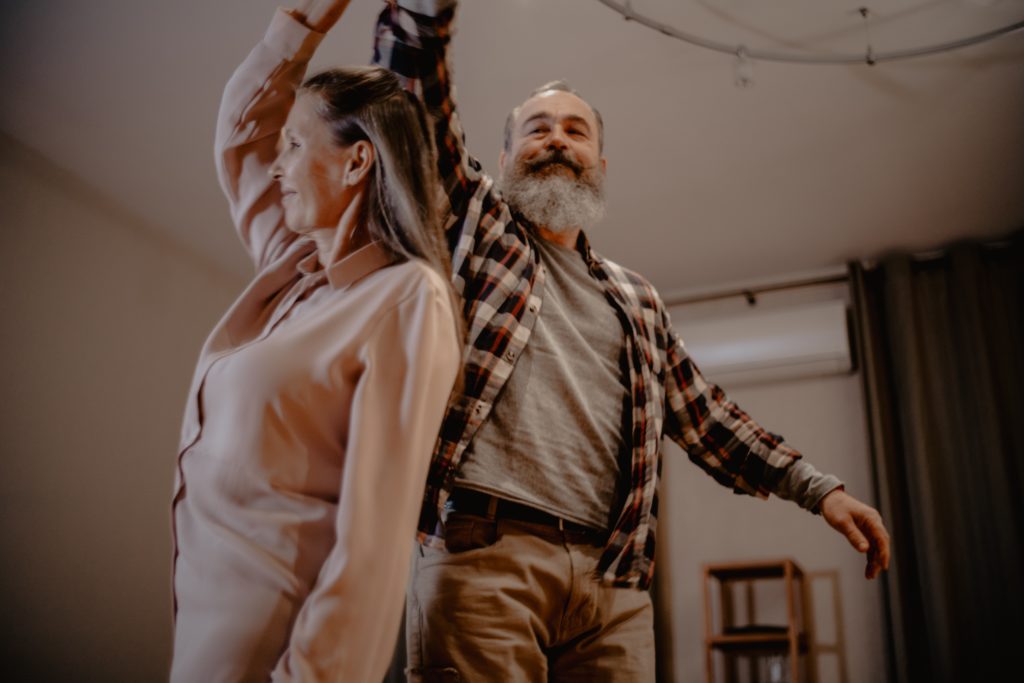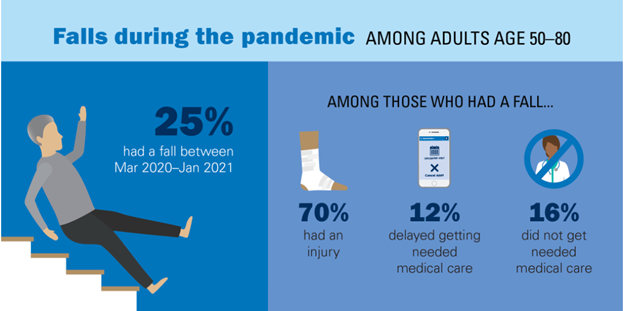
Know Your Risks Beforehand and Be Proactive to Effectively Manage Your Health Care Needs
Losing balance as we age is something that most of us accept as inevitable. Dizzy spells, reaching out to steady yourself on a countertop or second thoughts about going for a walk with the grandchildren all are understandable concerns.
We know that one in three people 65 or older fall every year is due to a lack of practice and misuse of the systems in the body that contribute to balance. What many people did not anticipate is how a global pandemic could throw our population into sedentary lifestyle, speeding up a loss of balance in the course of a year versus what may have normally happened over a period of several years.
The Impacts of Inactivity and Deconditioning
Numerous articles studying activity levels during lockdowns brought on by the COVID-19 pandemic repeatedly cite a significant reduction in activity levels, an increase in sedentary lifestyles, increased anxiety and increased depression across age groups and populations. With the general decrease in activity levels and deconditioning over the last two years, it is no surprise that a survey conducted by the National Poll on Healthy Aging showed that 25% of respondents aged 50-80 had a fall between March 2020 and January 2021, and 40% of those had fallen more than once during the same time period. The good news is you are much more in control of improving your balance than you might think.

A simple fall can be devastating, causing a fractured hip, pelvis or spine. These events can result in a lowered quality of life, a visit to the hospital, or worse. If a fall can literally be a matter of life or death, it’s imperative to routinely visit the doctor and take steps on your own to ensure that you can stay active safely in your later years.
According to Jordan Cuenin, PT, DPT, clinic manager at CORA PT in Easley, South Carolina, “A fear of falling is common among individuals who have experienced a similar event. This phobia can be debilitating as it can limit one’s motivation to participate in activities, including attendance at social events. Not only is the fear of falling real, but experiencing a fall also increases your chances of falling again twofold.”
Balancing As We Age
Our ability to balance relies on the combination of information from the eyes, inner ears, joints and muscles. When all these systems are working well together, you’re well-balanced. As we age, so do the small bones in our ears, and our vision can suffer as well. Loss of appetite, reduced food intake, and decreased activity can make the joints and muscles suffer. It takes two to three weeks of inactivity or decreased activity for strength losses to become apparent. For many of us, even those who were previously active, the pandemic forced us into a sedentary lifestyle for many months. This can result in losses of strength, power, and cardiovascular health.
For the most part, the solution to balance issues is straightforward. Increasing daily movement in a gradual but challenging way is the key. Moving away from a sedentary lifestyle has immense benefits for everyone, and it’s even more important as we age.
“Keep moving. All too often, I see regular activity become less frequent as people age and retire, leading to deconditioning in all areas of health,” Cuenin reiterated.
We do not have to accept having a fall as a part of life just because we’re aging and are living through a pandemic. If you notice issues with loss of balance or perhaps light-headedness in situations where you’d normally feel in control, or if you feel unstable as you return to your prior level of activity, it’s time to schedule a visit with your doctor or a physical therapist.
Virtual and In-Person Fall Risk Screens
CORA Physical Therapy offers virtual and in-person fall risk screens. A therapist can assess your risk of falling in a matter of minutes, while being able to provide you with options on how to proceed with your care and how to reduce your risk of falls if need be. Whether you’re getting back into an active lifestyle after a long, sedentary pandemic, or whether you’re just trying to stay healthy, a personalized program can be prescribed for home use or implemented in a clinic, to target patient-specific needs. Treatment options can range from exercises to increase function of the inner ear to exercises for rebuilding strength in your legs, or specific balance activities to improve confidence and stability. If you can’t make it into a clinic, our therapists can provide telehealth visits and/or a home exercise program and safety checklist for decreasing your risk of falls within your home environment.
But what does the process look like? Is it really possible to go from feeling unsteady to regaining that confident spring in your step? Yes! If you don’t want to go through the lengthy process of having a doctor diagnose you with an issue before seeing a physical therapist, in many states you can see a physical therapist for up to 30 days without a doctor’s intervention.
Want to Achieve a Steady, Healthy Life? We Can Help.
Knowing your risks beforehand, developing a regimented exercise program and making slight modifications to your home can help prevent falls and protect you and your loved ones. Being proactive with your health is a much more cost-effective way to manage your health care needs than recovery from a fall.
For help improving your balance and stability, locate a CORA Physical Therapy clinic near you or schedule a virtual fall prevention screen today. Our licensed therapists are ready to help you live a safe, healthy life.
